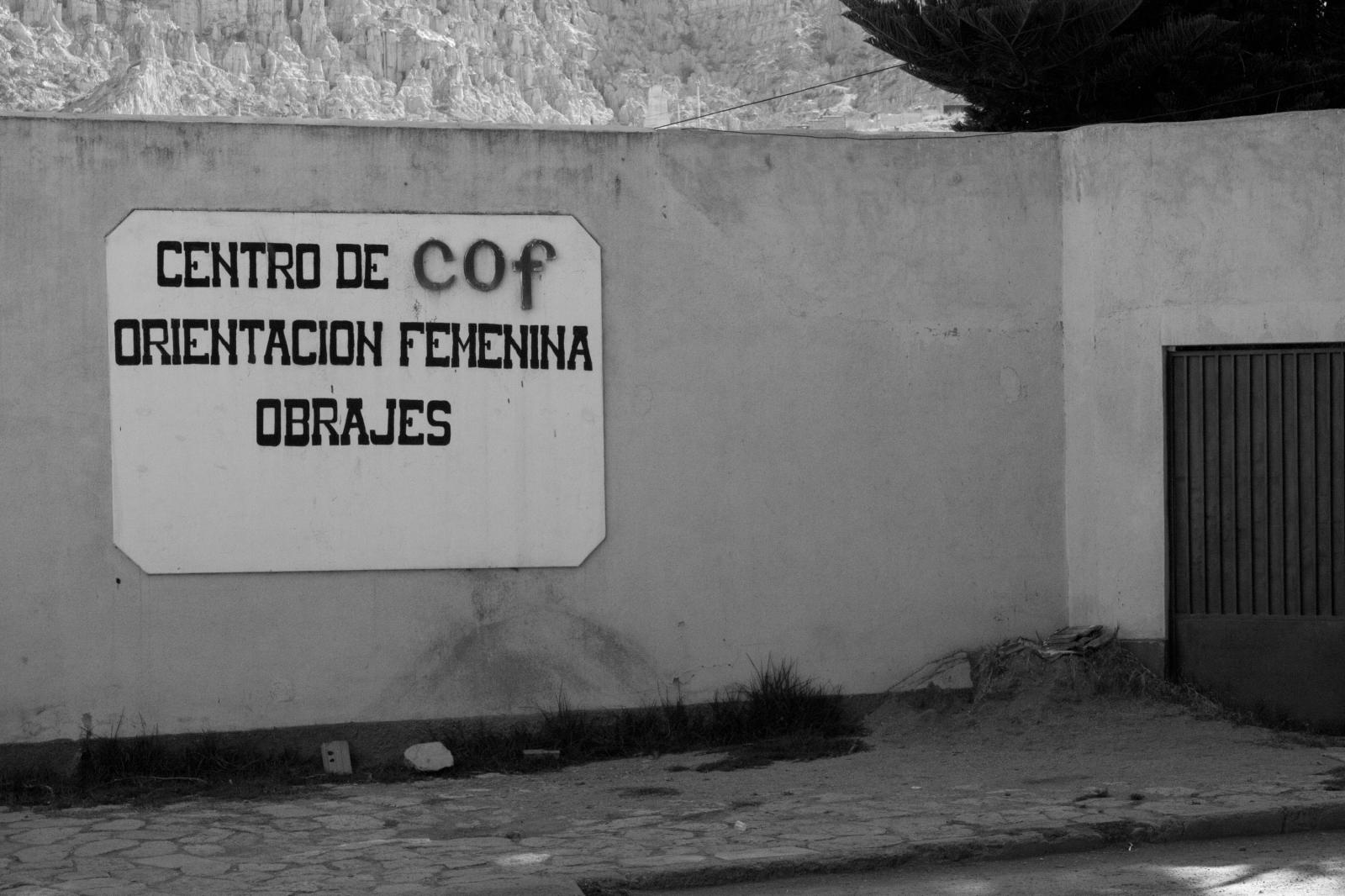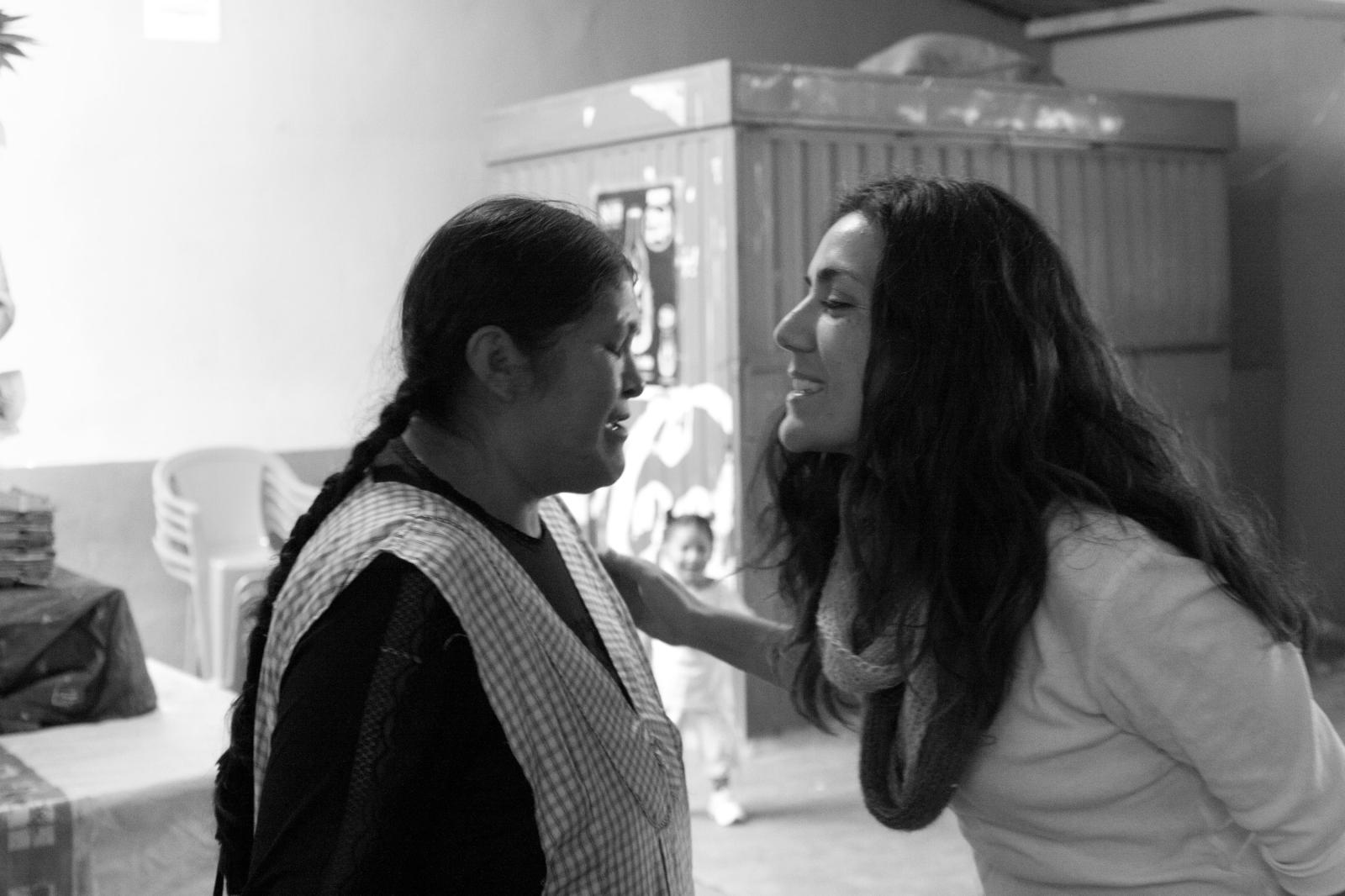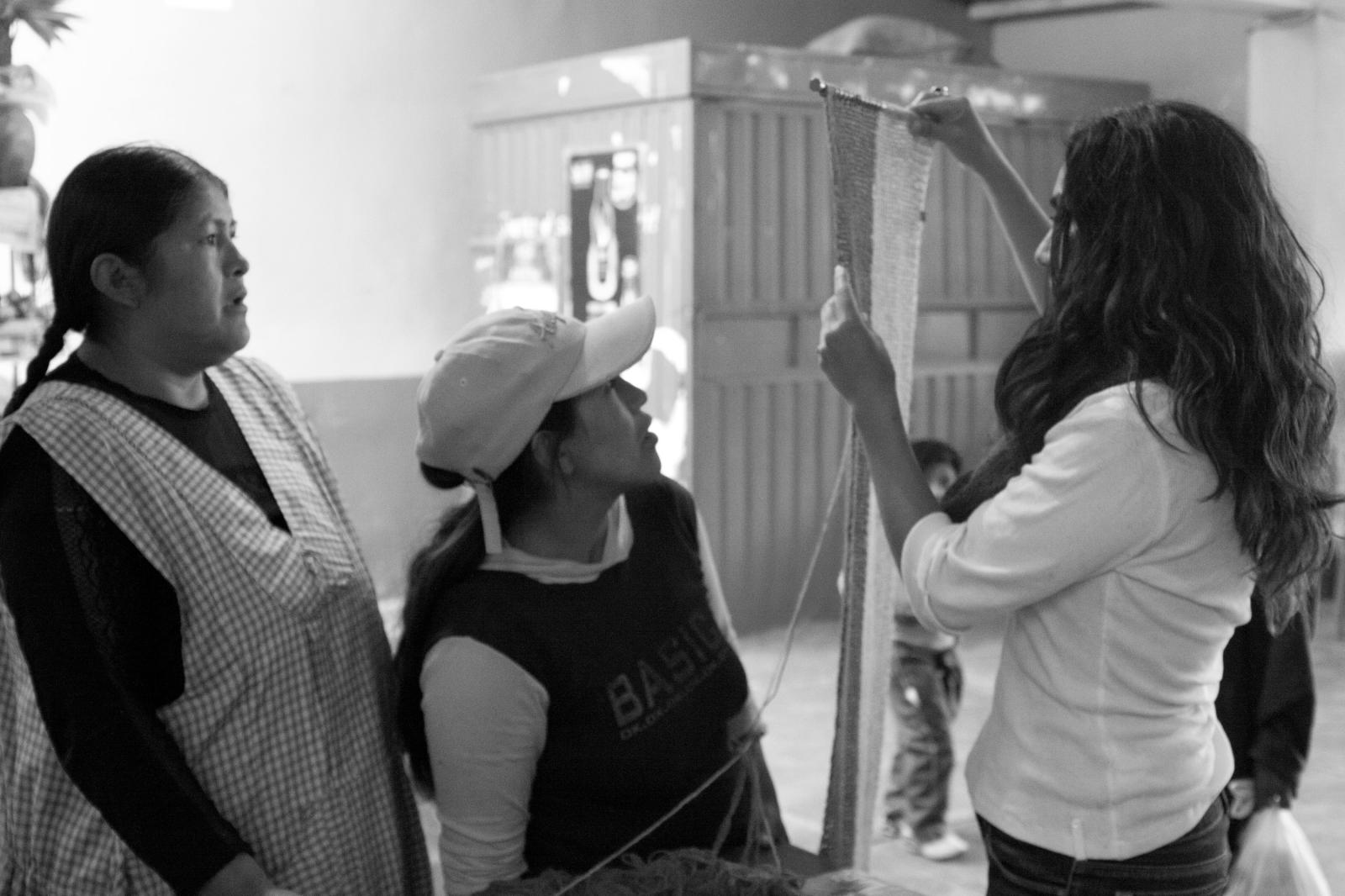The women in the Bolivian jail of Centro de Orientación Femenino de Obrajes have been incarcerated for life. In a legal system that offers them no ability to hire assistance, the majority of them carry thirty-year terms. Many have children with nowhere to go so they live in the jail with their mothers until they reach the age of twelve. After that, the children are on the streets, motherless.
I flew from Los Angeles to Bolivia to spend one afternoon with these women and their children. I was pulled for many reasons. Some of them are in prison for merely standing up for themselves in abusive relationships. Others, women who sold drugs to put food on the table for their children. I brought stuffed animals to the children in jail who will ultimately be on the streets as soon as they reach the age of twelve and are no longer allowed to live in prison.
The thought of these young kids roaming around the streets of La Paz, Bolivia alone, without their mother, brings me to my knees. My hope is these photos will inspire someone with the means to help release them from prison, to do so.
These women are empowered by the work they do knitting sweaters and scarves from Alpaca wool and scarves sold on line by a company called Knitting Peace. They each earn anywhere from about $5-120 per month from these goods. Bolivia is the poorest country in South America. The disenfranchised indigenous have an average income of $1,150 per capita.
The money alone isn't what drives these women. They are driven to do their best work possible to contribute to the outside world. I was touched by their humility and strength I saw on their faces and in their eyes. They are also supportive of one another; teaching each other new patterns in groups late at night to encourage each other's work and watching over each other's kids.
After weeks of sending letters asking for permission to photograph them, I received special permission by the government to bring in my camera. To achieve this it was necessary to make sure the captain was on board and supportive of the photo session, send a letter to the director of the departmental penitentiary regime and coordinate with the jail captain and social worker to get letters to support the project. Signatures from all team members were needed for photo release purposes. All this was submitted to the director. Then endless phone calls took place to make sure the plan was moving forward.
I was witness to these women's lives and lifted by their ability to smile because of their meaningful work despite their living conditions of tiny 5' x 5' rooms to sleep in with makeshift roofs of plastic to keep out the cold. I watched them fill with pride.
Indigenous women normally don't allow people to take their photos due their lack of teeth, lack of trust, and fear of losing their ajayu, or soul. In indigenous culture it is believed that a part of your soul is lost when a photo is taken. Yet, they allowed these photos to be taken because they trust the photos will be shown only outside Bolivia. If they are shown within Bolivia, they can be recognized and then run the risk of being stigmatized.
Despite their current situations, the women have managed to keep their senses of humor. When my carry on luggage full of candles and stuffed animals for them and their children was empty, Eulogia went to roll it heading towards the exit where she cannot leave, saying "Ya me voy con este". "I'm leaving now with this".
I had brought each woman a Santo Niño de Atocha candle. This saint is for those unjustly imprisoned. They were touched by the simple gift. As she kissed me on the cheek, Emiliana said "No se van a olvidar". "Don't forget us".
How could I? As a child, I witnessed my mother's abuse at the hands of an alcoholic husband. Watching this at a young age has made me an advocate of empowering women as an adult. I have become ever more aware of the pain of other people's lives and allow it to be part of me. Creating the photos of these women of the Centro de Orientación Femenino de Obrajes jail has given me a gift- the gift of helping others, without fear, which is true liberation and is essential to my own spiritual health and stamina.















